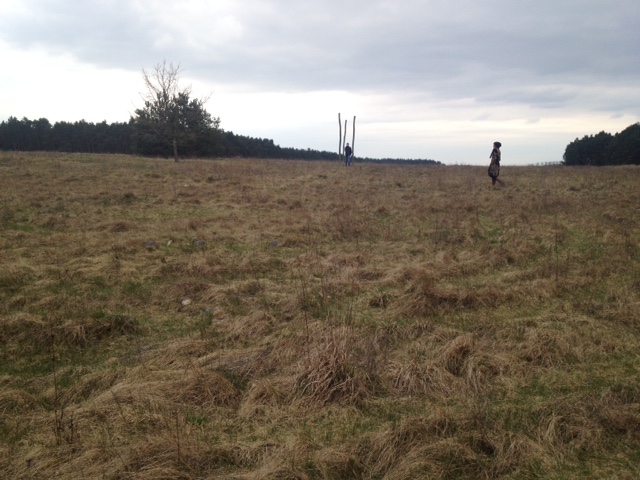
I took a week off in the Brandenburg countryside in a small village named Gottsdorf. In case I would get a crisis of withdrawal I brought my laptop but nope, I was fine. I did try to check the internet on my IPhone. To do so I had to walk through the village searching for a signal. I did so secretly with my phone in my pocket because nobody in Gottsdorf walks around while staring at a small screen. So there I was, enjoying a week of breathing, chakra chanting, meditation, yoga, and I won’t get into detail because you probably have a horror for the esoteric. Let me just say that if you breath really well, you don't have to take LSD...
So yes, it was great and it would have kept me from thinking about work, which is art, wasn’t it for fate that brought art also to this tiny two-streets village of Gottsdorf. There it was, right in the village’s centre, although centre seems a big word for a pineapple tree, a wooden tower with a bell, and a fire place. It was a small shack, which used to be a smith in old times, then transformed into a waiting room for the bus, and from a waiting room it turned into an art space. This is the natural course of things. When the bus only comes by once a day, it’s bound to happen. “It takes a lot of time to be a genius,” Gertrude Stein said, “You have to sit around so much, doing nothing, really doing nothing.” The same counts for genius artists. In the city there’re no waiting rooms left (look in vain at the Hauptbahnhof), but in Gottsdorf there is still The Right To Be Lazy.

When I passed the little shack and turned left into a field road, I came upon some more art. I’m talking about the magic art that you expect to find in two-streets villages. In the middle of ploughed land there was a patch of wild grass with a stone, which I presume is the altar, three sticks with strings that make the sound of sirens when the wind blows, and a labyrinth. I imagine that in the summer you can find the village people dancing around wildly, naked of course, living up the German Freikörperkultur. (hum, is here my LSD breathing kicking in?)

A spicy detail: it was in the nearby city Luckenwalde that in 1867 the Pappteller (paper plate) was invented. Guten Appetit!
